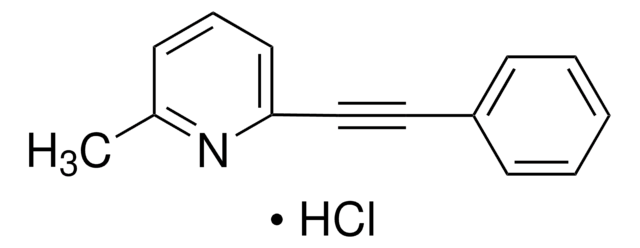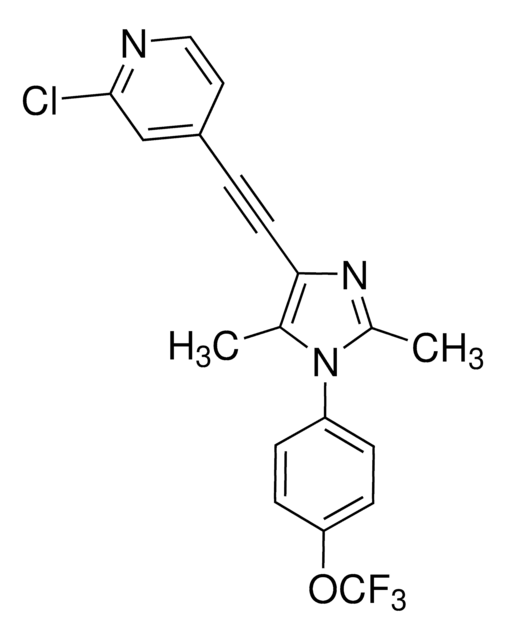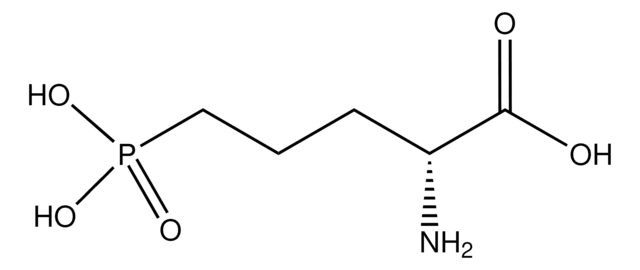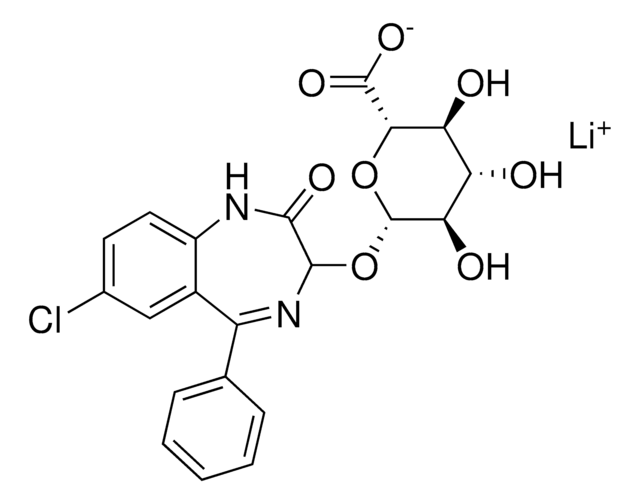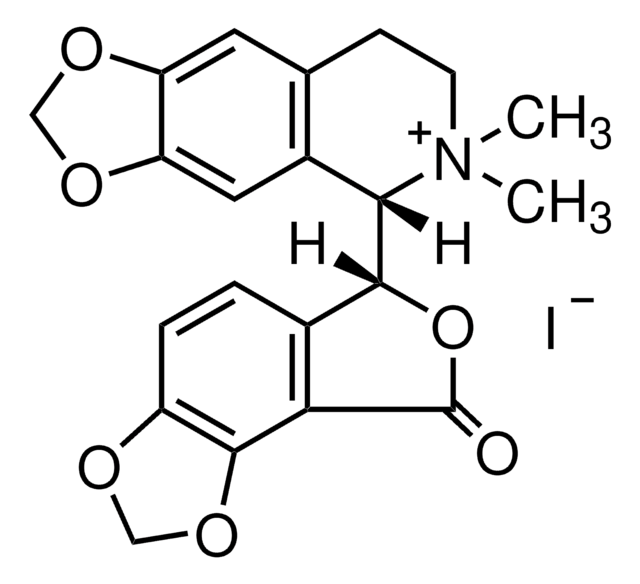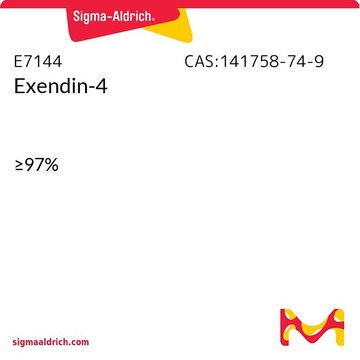445874
mGluR5 Antagonist, MTEP
The mGluR5 Antagonist, MTEP, also referenced under CAS 329205-68-7, controls the biological activity of mGluR5. This small molecule/inhibitor is primarily used for Neuroscience applications.
Synonyme(s) :
mGluR5 Antagonist, MTEP, 3-((2-Methyl-1,3-thiazol-4-yl)ethynyl)pyridine
About This Item
Produits recommandés
Niveau de qualité
Essai
≥98% (HPLC)
Forme
solid
Fabricant/nom de marque
Calbiochem®
Conditions de stockage
OK to freeze
protect from light
Couleur
white to yellow
Solubilité
methanol: 1 mg/mL
DMSO: 5 mg/mL
Conditions d'expédition
ambient
Température de stockage
2-8°C
Chaîne SMILES
[s]1c(nc(c1)C#Cc2cnccc2)C
InChI
1S/C11H8N2S/c1-9-13-11(8-14-9)5-4-10-3-2-6-12-7-10/h2-3,6-8H,1H3
Clé InChI
NRBNGHCYDWUVLC-UHFFFAOYSA-N
Description générale
Actions biochimiques/physiologiques
mGluR5
Conditionnement
Avertissement
Reconstitution
Autres remarques
Busse, C.S., et al. 2004. Neuropsychopharmacology29, 1971.
Roppe, J.R., et al. 2004. Bioorg. Med. Chem. Lett.14, 3993.
Klodzinska, A., et al. 2004. Neuropharmacology47, 342.
Cosford, N.D.P., et al. 2003. J. Med. Chem.46, 204.
Brodkin, J., et al. 2002. Eur. J. Neurosci.16, 2241.
Informations légales
Code de la classe de stockage
11 - Combustible Solids
Classe de danger pour l'eau (WGK)
WGK 1
Point d'éclair (°F)
Not applicable
Point d'éclair (°C)
Not applicable
Certificats d'analyse (COA)
Recherchez un Certificats d'analyse (COA) en saisissant le numéro de lot du produit. Les numéros de lot figurent sur l'étiquette du produit après les mots "Lot" ou "Batch".
Déjà en possession de ce produit ?
Retrouvez la documentation relative aux produits que vous avez récemment achetés dans la Bibliothèque de documents.
Notre équipe de scientifiques dispose d'une expérience dans tous les secteurs de la recherche, notamment en sciences de la vie, science des matériaux, synthèse chimique, chromatographie, analyse et dans de nombreux autres domaines..
Contacter notre Service technique